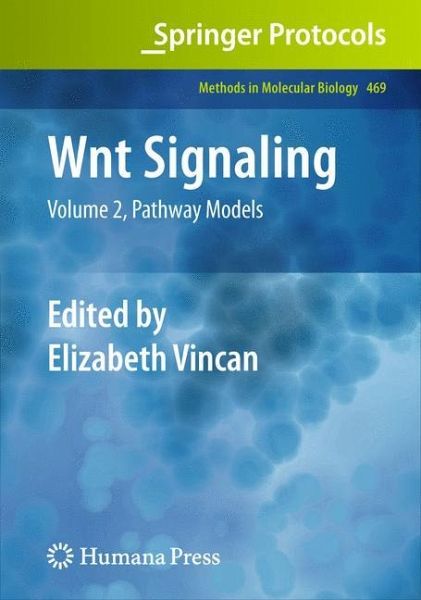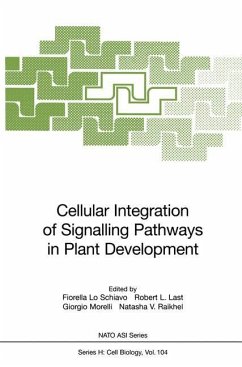
Wnt Signaling
Volume 2, Pathway Models
Herausgegeben: Vincan, Elizabeth

PAYBACK Punkte
39 °P sammeln!
Since their discovery, Wnt signaling molecules have been shown to control key events in embryogenesis, to maintain tissue homeostasis in the adult and, when aberrantly activated, to promote human degenerative diseases and cancer, thus making them a vital area of study. Wnt Signaling: Methods and Protocols examines both biochemical assays and vertebrate and invertebrate model systems to provide a point of reference to current molecular protocols and the diverse model systems employed to study this important signaling pathway. In Volume 2, Pathway Models, the diverse vertebrate and invertebrate ...
Since their discovery, Wnt signaling molecules have been shown to control key events in embryogenesis, to maintain tissue homeostasis in the adult and, when aberrantly activated, to promote human degenerative diseases and cancer, thus making them a vital area of study. Wnt Signaling: Methods and Protocols examines both biochemical assays and vertebrate and invertebrate model systems to provide a point of reference to current molecular protocols and the diverse model systems employed to study this important signaling pathway. In Volume 2, Pathway Models, the diverse vertebrate and invertebrate models that have shaped the Wnt signaling field are described, presenting an overview of the unique properties of each organism, like asymmetric cell division in C. elegans and epithelial morphogenesis in Dictyostelium, with respect to studying Wnt/FZD function. As a volume in the highly successful Methods in Molecular Biology(TM) series, chapters contain readily reproducible laboratory protocols, complete with lists of necessary equipment and reagents and the Notes section, which reveals helpful troubleshooting tips.
Comprehensive and cutting-edge, Wnt Signaling: Methods and Protocols collects the expertise and knowledge of many leaders in the field to produce this invaluable two-volume resource.
Comprehensive and cutting-edge, Wnt Signaling: Methods and Protocols collects the expertise and knowledge of many leaders in the field to produce this invaluable two-volume resource.













